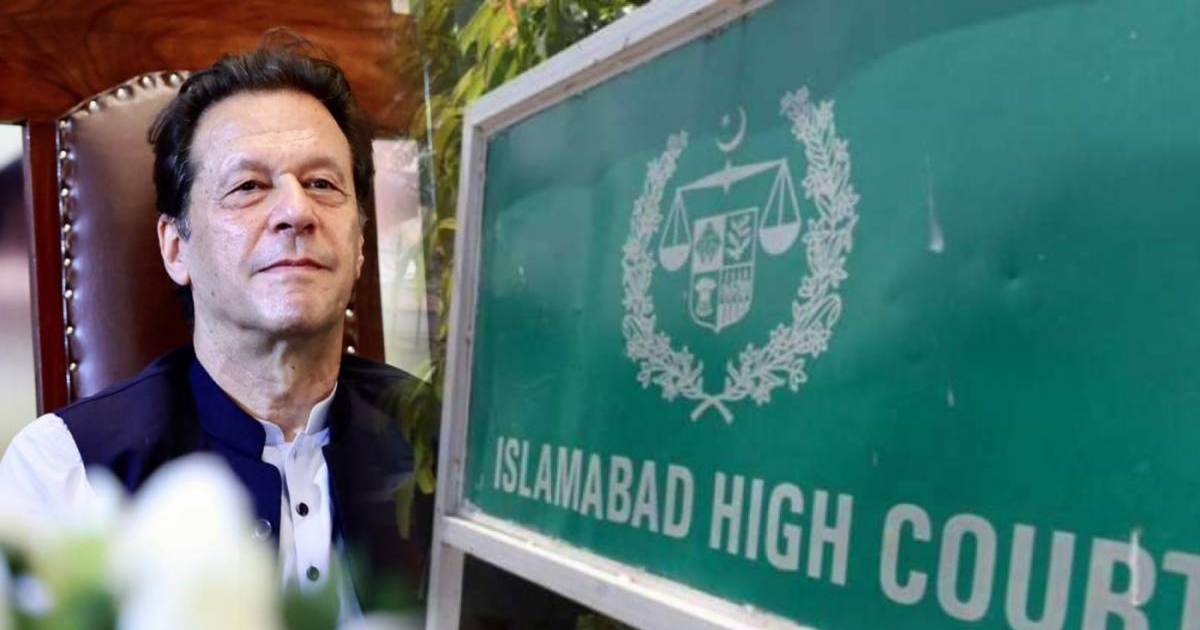The Islamabad High Court (IHC) postponed the hearing of a case involving the conviction of the former prime minister Imran Khan in the Toshakhana case.
Toshakhana conviction IHC adjourns till Aug 28: The authorities have decided to postpone the hearing until Monday, August 28. Both the IHC and the Supreme Court had postponed the hearing until today (Friday) on Thursday.
Sardar Latif Khosa, Salman Akram Raja, and Attorney Gohar Ali Khan argued against Imran’s appeal before the IHC at the hearing on Thursday. They brought up concerns about procedural irregularities, time restrictions, and the lack of access to the defence attorney for last arguments prior to the trial court’s decision.
Imran complained in his petitions about the ruling from the Additional Sessions Judge, Islamabad (West), dated August 5, which resulted in his conviction for violating Article 174 of the 2017 Election Act.
Khosa stated that as per the Elections Act of 2017, the procedure mandates presenting the matter before a magistrate. Subsequently, the magistrate assesses the case file and determines whether to forward it to a Sessions Judge.
He explained that the Act stipulates that MNAs must file their annual statement of assets and liabilities with the Election Commission no later than 120 days after it is due. Khosa contend that Imran had submitt wealth statements between 2018 and 2020, but objections weren’t raise until 2023.
He claimed that the trial court’s decision was faulty.
ECP asks IHC not to rule on IK’s plea before hearing from the state
The Election Commission of Pakistan (ECP) requested on Thursday that the IHC defer making a decision on Imran’s petition for the stay of the trial court’s ruling and the granting of bail until it had heard from the state.
The ECP’s Amjad Pervaiz claimed that as the State is holding the accused in its custody, the petitioner should have added the State as a respondent, which they have not done, and that the High Court has also not notified the State. He urged the court to hear the State before making a decision on the appeal.
Amjad pointed out multiple Supreme Court decisions that establish the inclusion of the State as a party in the appeal filed by the accused to contest their conviction. He explained that there exist two distinct types of appeals: one pertains to challenging an acquittal, where notifying the State is unnecessary, and the other involves appealing to overturn a conviction, which legally mandates the State’s representation in front of a division bench of the high court.
Background
Authorities took Imran into custody from his home in Lahore on August 5, shortly after a district and sessions court in the federal capital convicted him in the Toshakhana case and handed him a three-year prison sentence. He is currently being detained at Attock Prison.
Imran complained in his petitions about the ruling from the Additional Sessions Judge, Islamabad (West), dated August 5, which resulted in his conviction for violating Article 174 of the 2017 Election Act.
He further stated that the contested order was unjustified and could be subject to overturning.
The petitioner claimed that the learned trial judge had decided to convict and punish the appellant regardless of the case’s merits when he rendered the impugned ruling. They asserted that the appellant had not been granted a fair or satisfactory chance to speak before the contested judgment was pronounced.

